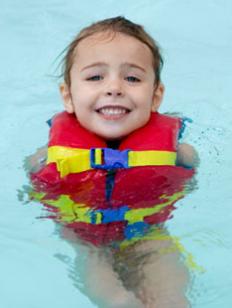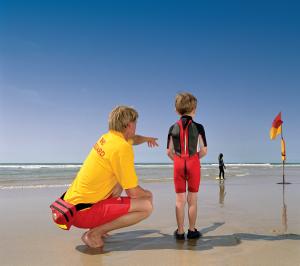As summer is approaching, many families are planning their annual vacations to their favorite beachy shores. While beach vacations are always a time to relax, have fun and enjoy the scenery, there are also some safety precautions to take. AIS has compiled a list of 3 safety tips to help you and your children to have the best and safest stay on the shore.
1. Make sure your child always wears a life jacket:
Especially for children who cannot swim strongly, it is suggested that you are with them at all times even if they are equipped with a jacket. To make sure that the life jacket will do its job, read the instructions and see if your child weighs enough for the life jacket will fit correctly. Also, you should adjust the tightening straps for a comfortable, but safe trip into the water. Even if they have a life jacket on, you should never let your child go too far out in the water, especially if there is a strong under current or large waves.
2. Recognize a rip tide:
Take a second to watch the water before you or your children go enjoy the water. Is there a part of the beach where the waves just aren’t breaking? Does the white water that’s rolling in disappear in a section of darker water? That is the deeper water. Waves break where the water gets shallow. If they aren’t breaking, it’s deeper there and you should move your kids somewhere well away from it because that’s the spot that’s pulling out to sea.
3. Talk to the lifeguard on duty:
Swim in a lifeguard-protected area while obeying all instructions and orders from the lifeguards. Read the warnings on the lifeguard sign before heading down to the water because posted warnings may include sightings of wildlife, water conditions, weather forecasts and rip current warnings. Take time to talk with the lifeguard since he or she will be able to give you updates about current conditions and his or her personal opinion about water safety and ocean conditions.
Common sense and some simple preparations will help keep both you and your children safe and secure this summer at the beach. Make sure to pay attention to your kids and know the warning signs and dangers associated with playing in the sand, being out in the hot summer sun and swimming in the ocean.
The information in this article was obtained from various sources. This content is offered for educational purposes only and does not represent contractual agreements, nor is it intended to replace manuals or instructions provided by the manufacturer or the advice of a qualified professional. The definitions, terms and coverage in a given policy may be different than those suggested here and such policy will be governed by the language contained therein. No warranty or appropriateness for a specific purpose is expressed or implied.




